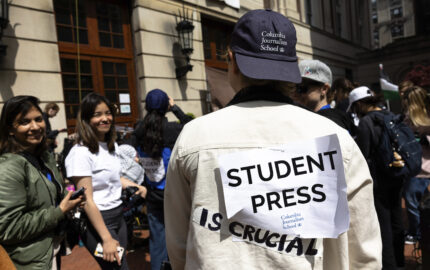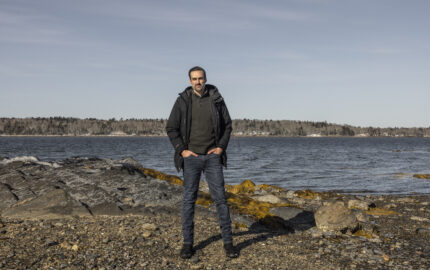
When I informed friends and colleagues I was leaving as associate director of the Pew Research Center’s Journalism Project to buy a weekly in North Carolina’s Outer Banks there were a number of reactions. One went this way: “You just spent eight years at Pew studying the newspaper industry and now you’re buying one?” (Unstated, but clearly implied was the question—“Do you think you should schedule an MRI?”)
At Pew, we spent many hours analyzing the U.S. newspaper industry. And what we learned helped convince me, in theory at least, that solid, credible community weeklies can be pretty strong franchises—free from much of the overhead and mission tension that can plague metro dailies. Indeed, in 2014 a Pew report identified 438 smaller new digital news organizations, many of them launched to fill gaps left by legacy layoffs. More than half—231, to be exact—were primarily covering news at the local or hyperlocal level.
Related Article
“Local Weeklies are Covering the Communities Big Dailies Ignore”
By Barbara Selvin
Yet, there are important things you pick up at ground level that are harder to see from the view at 30,000 feet. And with the caveat that there can be vast differences among community news outlets—circulation numbers, distribution platforms, staffing levels, and even editorial mission—here are four lessons I’ve learned since buying the Outer Banks Sentinel last August that my work at Pew didn’t fully prepare me for.
Understand Local Culture
Without hedging on the core missions of accountability and unbiased reportage, it is journalistically important to get a handle on community standards and mores. It was particularly important to me, as a newcomer, that the paper seemed in sync with its readers. I learned early on, for example, that there was squeamishness about writing and talking about suicide in this area. It helped inform the way we covered one important story—and the community appreciated it. And at a time of coarse political debate in this country, there is a certain bipartisan gentility that moderates public discourse in Outer Banks politics. That prompted us to write a story on that phenomenon, which stood in sharp contrast to the mudslinging that defined the state’s U.S. Senate race.
Put the Public in Publisher
Having bought the Sentinel from an out-of-town publisher who was not well-known here, I quickly recognized the need to sell myself and the paper to the community at the retail level. That meant speaking before the Chamber of Commerce and at Rotary Clubs, lunching frequently with people in the private, public, and nonprofit sectors, and involving the newspaper as a sponsor of everything from the YMCA to the Martin Luther King school essay contest. In the Christmas season, we even opened our offices to host people getting their pets’ pictures taken with Santa Claus—winning some new friends in the process. Indeed, our efforts to re-establish the paper as an active civic citizen have generated a very positive response. As for the role of the publisher, this is not a job for introverts.
Print has its Virtues
Sometimes the debate about print versus digital seems to take on an almost ideological tone. The reality can be a little different. In our case, the older-skewing demographics of the Outer Banks make it a more inherently print-friendly environment. (Our local competitors include a digital-only and a print-only news outlet. We have a print and digital platform, although the latter is getting a much-needed upgrade.) Our print product allows us to publish revenue-generating “special pubs” throughout the year, to handle the retail advertising inserts that are an increasing part of our business and to earn money producing publications and brochures for our merchants. And then there is the incalculable benefit of having an editorial insert—like the four-page Voter’s Guide section we produced in October—handed out at local events. We contract out the printing of our paper and those costs are not inconsiderable. But after just switching our printing work to the large regional daily, The Virginian-Pilot, I can say there’s a nice buyer’s market for that service.
Kill the Bees Yourself
One afternoon this past summer, I got a somewhat frantic call from my editor telling me that an unlucky customer at a local mall was stung when a swarm of bees emerged from inside the Sentinel newspaper box he had opened. My first impulse was to ignore that call. My second was that this was definitely my problem. So armed with a Wiffle ball bat and a can of industrial strength bug killer, I managed to rout the colony of angry insects. This anecdote speaks to a bigger truth. Like many community weeklies, we have a modest staff at the Sentinel—six full-timers (including my wife and myself), one part-timer, and two drivers—so it almost goes without saying: There is virtually no matter too trivial for your attention. You own everything about the paper—from its reputation to the safety of its customers who buy it. During the negotiations to buy the paper, one wise observer told me I wasn’t simply buying a news outlet, I was buying a “lifestyle.” Running a community paper isn’t just a job; it is a way of life.


